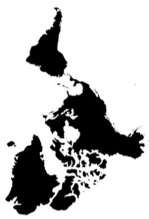 Created and curated as one settler’s labor of love and resistance, Unsettling America aspires towards a decentralized network of autonomous groups and individuals dedicated to mental and territorial decolonization throughout Turtle Island and the “Americas.”
Created and curated as one settler’s labor of love and resistance, Unsettling America aspires towards a decentralized network of autonomous groups and individuals dedicated to mental and territorial decolonization throughout Turtle Island and the “Americas.”
We are not here to document Statist, top-down legislative/governmental “decolonization” from above, but rather the mental, spiritual, and psychological decolonization and liberation that can only come from below and within, and does not seek sanction or legitimization from abstract (and fundamentally illegitimate) external power structures in seeking true sovereignty and self-determination for ourselves and for all people.
Want to join us and contribute to the project? Contact unsettlingamerica@riseup.net to get involved.
This site is under development. Stay tuned for updates!
We share these points of unity to guide our allyship and activism:
- All people not indigenous to North America who are living on this continent are settlers on stolen land. We acknowledge that Canada, the United States of America, Mexico, and Central & South America were founded through genocide and colonization of indigenous peoples–which continues today and from which settlers directly benefit.
- All settlers do not benefit equally from the settler-colonial state, nor did all settlers emigrate here of their own free will. Specifically, we see slavery, hetero-patriarchy, white supremacy, market imperialism, and capitalist class structures as among the primary tools of colonization. These tools divide communities and determine peoples’ relative access to power. Therefore, anti-oppression solidarity between settler communities is necessary for decolonization. We work to build anti-colonial movements that actively combat all forms of oppression.
- We acknowledge that settlers are not entitled to live on this land. We accept that decolonization means the revitalization of indigenous sovereignty, and an end to settler domination of life, lands, and peoples in all territories of the so-called “Americas.” All decisions regarding human interaction with this land base, including who lives on it, are rightfully those of the indigenous nations.
- As settlers and non-native people (by which we mean non-indigenous to this hemisphere) acting in solidarity, it is our responsibility to proactively challenge and dismantle colonialist thought and behavior in the communities we identify ourselves to be part of. As people within communities that maintain and benefit from colonization, we are intimately positioned to do this work.
- We understand that allies cannot be self-defined; they must be claimed by the people they seek to ally with. We organize our solidarity efforts around direct communication, responsiveness, and accountability to indigenous people fighting for decolonization and liberation.
- We are committed to dismantling all systems of oppression, whether they are found in institutional power structures, interpersonal relationships, or within ourselves. Individually and as a collective, we work compassionately to support each other through these processes. Participation in struggle requires each of us to engage in both solidarity and our own liberation: to be accountable for all privileges carried, while also struggling for liberation from internalized and/or experienced oppression. We seek to build a healthy culture of resistance, accountability, and sustenance.
(Adapted from Unsettling MN‘s Points of Unity)
—————————————————————————————————————————
Indigenous Solidarity Guidelines
It’s important that members of settler culture ally themselves with indigenous communities fighting for their rights and survival, but there are right and wrong ways to express solidarity. The following guidelines have been put together by Deep Green Resistance members with the help of indigenous activists. They aren’t a complete how-to guide – every community and every situation is different – but they can hopefully point you in a good direction for acting effectively and with respect.
Deep Green Resistance Indigenous Solidarity Guidelines:
1. First and foremost we must recognize that non-indigenous people are occupying stolen land in an ongoing genocide that has lasted for centuries. We must affirm our responsibility to stand with indigenous communities who want support and give everything we can to protect their land and culture from further devastation; they have been on the frontlines of biocide and genocide for centuries, and as allies, we need to step up and join them.
2. You are doing Indigenous solidarity work not out of guilt, but out of a fierce desire to confront oppressive colonial systems of power.
3. You are not helping Indigenous people, you are there to: join with, struggle with, and fight with indigenous peoples against these systems of power. You must be willing to put your body on the line.
4. Recognize your privilege as a member of settler culture.
5. You are not here to engage in any type of cultural, spiritual or religious needs you think you might have, you are here to engage in political action. Also, remember your political message is secondary to the cause at hand.
6. Never use drugs or alcohol when engaging in Indigenous solidarity work. Never.
7. Do more listening than talking, you will be surprised what you can learn.
8. Recognize that there will be Indigenous people that will not want you to participate in ceremonies. Humbly refrain from participating in ceremonies.
9. Recognize that you and your Indigenous allies may be in the minority on a cause that is worth fighting for.
10. Work with integrity and respect, be trustworthy and do what you say you are going to do.
—————————————————————————————————————————
As allies, we follow the guidelines of the Ally Bill of Responsibilities:
A Responsible Ally:
1. Does not act out of guilt, but rather out of a genuine interest in challenging the larger oppressive power structures;
2. Understands that they are secondary to the Indigenous people that they are working for and that they seek to serve. They and their needs must take a back seat, and listen more than speak;
Click here to read the full Ally Bill of Responsibilities…
—————————————————————————————————————————
We have also adopted Setting The Record Straight’s Points of Unity:
The Points of Unity are the values and ideas in which all members of the collective agree upon. To be a member of this collective, you must agree on the following five points of unity. This is our foundation, the place in which we find common ground. If you are considering working with our group, or wish to get involved, please review these points.
- We recognize that “race” is a false construct, arbitrarily created by Europeans to establish and maintain privilege and power. “Whiteness” was invented for similar reasons and serves as “North” on the illegitimate “compass” of race by creating hierarchies of language, skin tone, religious practice, and culture. We seek to deconstruct these oppressive paradigms and take part in the effort already established to build and resurrect models of human interaction based on cooperation and the value inherent in our various traditions and cultures.
- We recognize and respect the inherent autonomy and self-determination of indigenous groups. We define autonomy as the capacity of communities to survive and thrive without interference or threat of violence from outside forces. We see self-determination as the power of a community to define its own fate and course of action.
- We seek an immediate end to all genocidal policies and activities. We oppose the full range of genocidal actions, including things like cultural appropriation, which are often mistakenly thought of as non-genocidal because they don’t necessarily entail direct physical violence.
- We seek to help create relationships of true and lasting justice between indigenous and non-indigenous communities. We believe that those who benefit from the occupation of indigenous territories have a responsibility to put effort into helping build these fundamentally just relationships. If necessary, non-indigenous communities should make themselves available to indigenous groups as a source of aid and support. Because everyone ultimately stands to gain from this process, we promote mutual empowerment, not charity.
- We support and respect a diversity of tactics and efforts made by colonized groups to resist oppression and/or reclaim complete autonomy. However, we may not condone all methods used, or choose to utilize certain methods ourselves.
- We will actively fight all oppression in ourselves, our collective and events, in liberatory movements, and outside the movement. We hold that all systems of oppression are linked, and that no movement for liberation can succeed while replicating/maintaining any oppression. We will not tolerate any form of oppression. Some systemic oppressions include racism, sexism, transphobia, and ablism.
—————————————————————————————————————————
We also take inspiration and guidance from Derrick Jensen‘s Premises of Endgame (though we reject his later embrace of trans-exclusionary “radical feminism”):
Premise One: Civilization is not and can never be sustainable. This is especially true for industrial civilization.
Premise Two: Traditional communities do not often voluntarily give up or sell the resources on which their communities are based until their communities have been destroyed. They also do not willingly allow their landbases to be damaged so that other resources—gold, oil, and so on—can be extracted. It follows that those who want the resources will do what they can to destroy traditional communities.
Premise Three: Our way of living—industrial civilization—is based on, requires, and would collapse very quickly without persistent and widespread violence.
Premise Four: Civilization is based on a clearly defined and widely accepted yet often unarticulated hierarchy. Violence done by those higher on the hierarchy to those lower is nearly always invisible, that is, unnoticed. When it is noticed, it is fully rationalized. Violence done by those lower on the hierarchy to those higher is unthinkable, and when it does occur is regarded with shock, horror, and the fetishization of the victims.
Premise Five: The property of those higher on the hierarchy is more valuable than the lives of those below. It is acceptable for those above to increase the amount of property they control—in everyday language, to make money—by destroying or taking the lives of those below. This is called production. If those below damage the property of those above, those above may kill or otherwise destroy the lives of those below. This is called justice.
Premise Six: Civilization is not redeemable. This culture will not undergo any sort of voluntary transformation to a sane and sustainable way of living. If we do not put a halt to it, civilization will continue to immiserate the vast majority of humans and to degrade the planet until it (civilization, and probably the planet) collapses. The effects of this degradation will continue to harm humans and nonhumans for a very long time.
Premise Seven: The longer we wait for civilization to crash—or the longer we wait before we ourselves bring it down—the messier will be the crash, and the worse things will be for those humans and nonhumans who live during it, and for those who come after.
Premise Eight: The needs of the natural world are more important than the needs of the economic system.
Another way to put premise Eight: Any economic or social system that does not benefit the natural communities on which it is based is unsustainable, immoral, and stupid. Sustainability, morality, and intelligence (as well as justice) requires the dismantling of any such economic or social system, or at the very least disallowing it from damaging your landbase.
Premise Nine: Although there will clearly some day be far fewer humans than there are at present, there are many ways this reduction in population could occur (or be achieved, depending on the passivity or activity with which we choose to approach this transformation). Some of these ways would be characterized by extreme violence and privation: nuclear armageddon, for example, would reduce both population and consumption, yet do so horrifically; the same would be true for a continuation of overshoot, followed by crash. Other ways could be characterized by less violence. Given the current levels of violence by this culture against both humans and the natural world, however, it’s not possible to speak of reductions in population and consumption that do not involve violence and privation, not because the reductions themselves would necessarily involve violence, but because violence and privation have become the default. Yet some ways of reducing population and consumption, while still violent, would consist of decreasing the current levels of violence required, and caused by, the (often forced) movement of resources from the poor to the rich, and would of course be marked by a reduction in current violence against the natural world. Personally and collectively we may be able to both reduce the amount and soften the character of violence that occurs during this ongoing and perhaps longterm shift. Or we may not. But this much is certain: if we do not approach it actively—if we do not talk about our predicament and what we are going to do about it—the violence will almost undoubtedly be far more severe, the privation more extreme.
Premise Ten: The culture as a whole and most of its members are insane. The culture is driven by a death urge, an urge to destroy life.
Premise Eleven: From the beginning, this culture—civilization—has been a culture of occupation.
Premise Twelve: There are no rich people in the world, and there are no poor people. There are just people. The rich may have lots of pieces of green paper that many pretend are worth something—or their presumed riches may be even more abstract: numbers on hard drives at banks—and the poor may not. These “rich” claim they own land, and the “poor” are often denied the right to make that same claim. A primary purpose of the police is to enforce the delusions of those with lots of pieces of green paper. Those without the green papers generally buy into these delusions almost as quickly and completely as those with. These delusions carry with them extreme consequences in the real world.
Premise Thirteen: Those in power rule by force, and the sooner we break ourselves of illusions to the contrary, the sooner we can at least begin to make reasonable decisions about whether, when, and how we are going to resist.
Premise Fourteen: From birth on—and probably from conception, but I’m not sure how I’d make the case—we are individually and collectively enculturated to hate life, hate the natural world, hate the wild, hate wild animals, hate women, hate children, hate our bodies, hate and fear our emotions, hate ourselves. If we did not hate the world, we could not allow it to be destroyed before our eyes. If we did not hate ourselves, we could not allow our homes—and our bodies—to be poisoned.
Premise Fifteen: Love does not imply pacifism.
Premise Sixteen: The material world is primary. This does not mean that the spirit does not exist, nor that the material world is all there is. It means that spirit mixes with flesh. It means also that real world actions have real world consequences. It means we cannot rely on Jesus, Santa Claus, the Great Mother, or even the Easter Bunny to get us out of this mess. It means this mess really is a mess, and not just the movement of God’s eyebrows. It means we have to face this mess ourselves. It means that for the time we are here on Earth—whether or not we end up somewhere else after we die, and whether we are condemned or privileged to live here—the Earth is the point. It is primary. It is our home. It is everything. It is silly to think or act or be as though this world is not real and primary. It is silly and pathetic to not live our lives as though our lives are real.
Premise Seventeen: It is a mistake (or more likely, denial) to base our decisions on whether actions arising from these will or won’t frighten fence-sitters, or the mass of Americans.
Premise Eighteen: Our current sense of self is no more sustainable than our current use of energy or technology.Premise Nineteen: The culture’s problem lies above all in the belief that controlling and abusing the natural world is justifiable.
Premise Twenty: Within this culture, economics—not community well-being, not morals, not ethics, not justice, not life itself—drives social decisions.
Modification of Premise Twenty: Social decisions are determined primarily (and often exclusively) on the basis of whether these decisions will increase the monetary fortunes of the decision-makers and those they serve.
Re-modification of Premise Twenty: Social decisions are determined primarily (and often exclusively) on the basis of whether these decisions will increase the power of the decision-makers and those they serve.Re-modification of Premise Twenty: Social decisions are founded primarily (and often exclusively) on the almost entirely unexamined belief that the decision-makers and those they serve are entitled to magnify their power and/or financial fortunes at the expense of those below.
Re-modification of Premise Twenty: If you dig to the heart of it—if there were any heart left—you would find that social decisions are determined primarily on the basis of how well these decisions serve the ends of controlling or destroying wild nature.



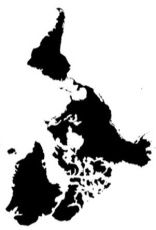

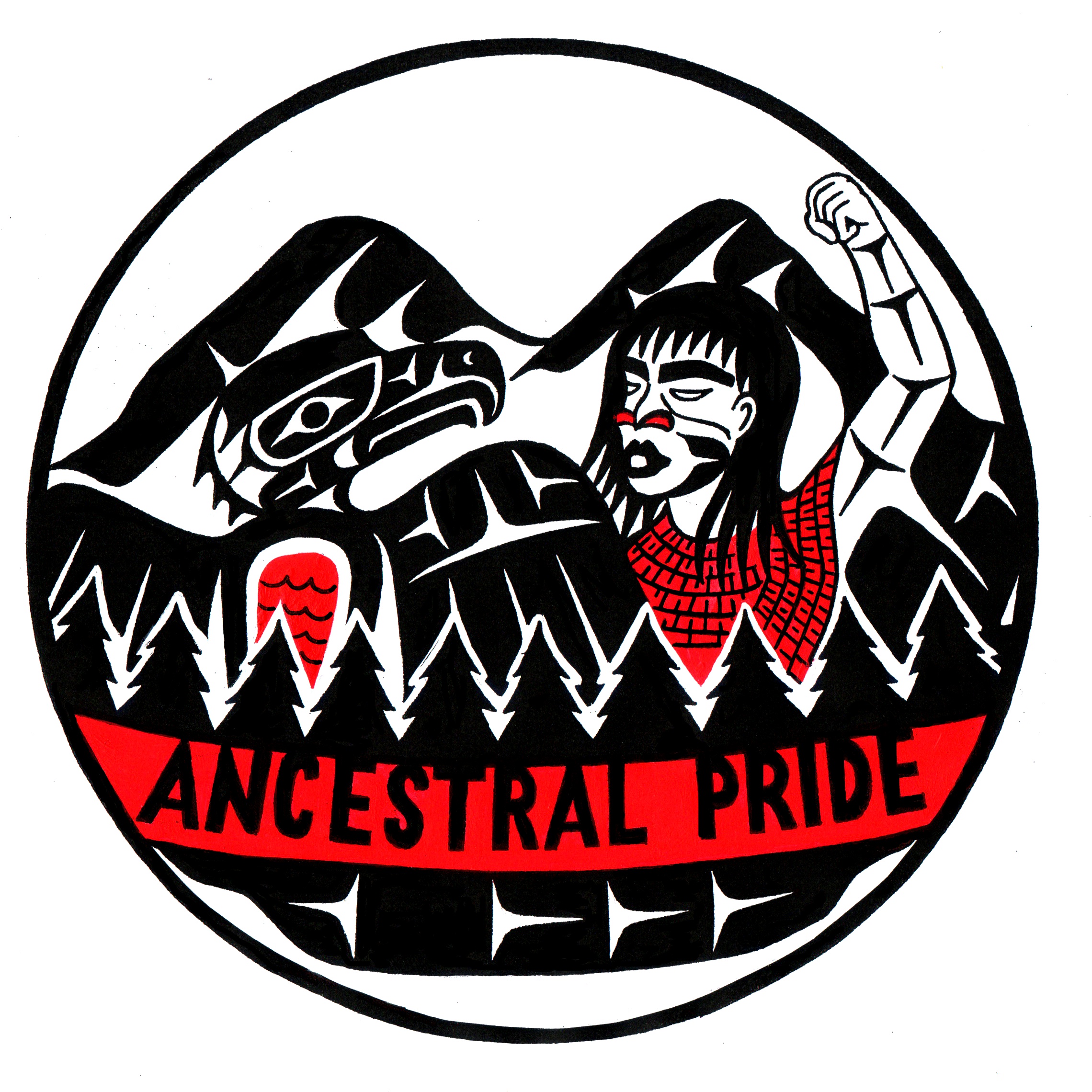

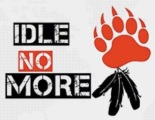



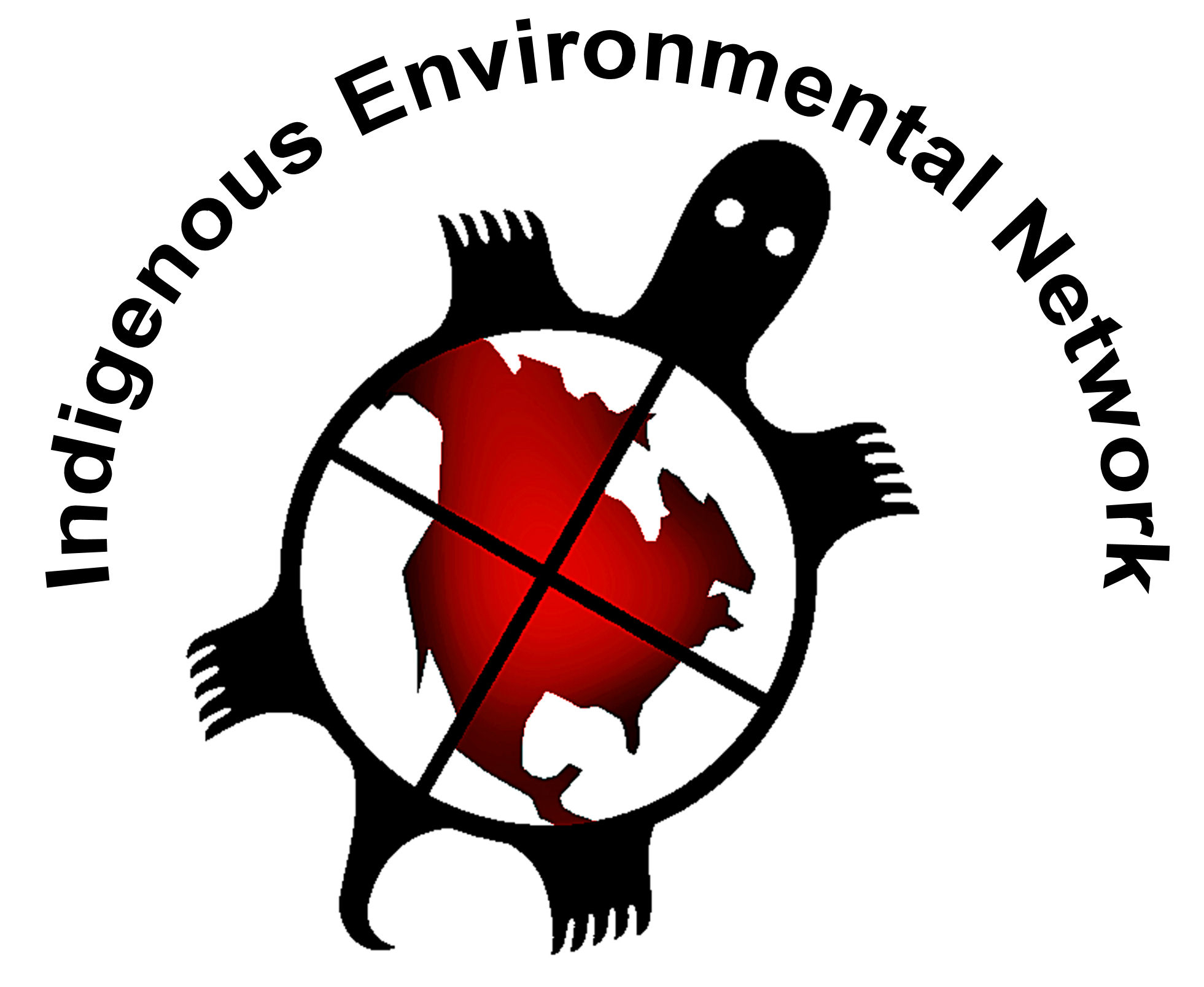


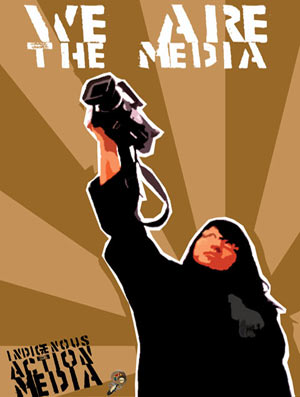













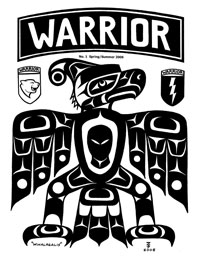


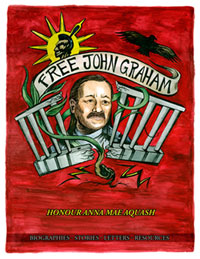



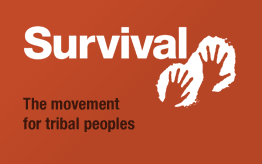


stay informed!
i am very interested in participating in some way, but i don’t often have enough time online to take the time to read. Maybe i can print this out, tho…! (The first point looks encouraging, anyway!)
comments on ‘points of unity’ from unsettlingamerica.wordpress.com
(first portion) email me at: spiritd_dude@yahoo.com
Should take back control of our words, i.e. ‘power’ (when describing tyranny). We should “say what we mean” more pointedly/directly. I.e. John Trudell, in his “We Are Power” speech (1980), pointing out that they don’t have ‘power’ they have terrorism and access to terrorism. (i can share a link or the text to that speech if you’re inclined)
How we use words is a significant tactic, in my view and we should utilize such with our best ability, not simply to go along with what is the imposed norm.
Okay, problem of cultural apropriation; so, what are we to do? We can “make up our own” based on intuitive self-permission to tap into our mutual creativity and praxis (could be a lot of fun, and real at the same time), or we could broaden existing ones, such as european indigenous traditions. And so on. i envision a broad mix from many cultures.
One i’d personally like to see is a “fire” made of multiple music sources (or a bunch of speakers) where favored music is played (i.e. techno without the narrative) which we dance around, as part of a ritual/ceremony to challenge (at an early level) other champions to “art” their bests. Including articulations in other ways, such as a “theatric duel” on a stage.
Definitions are key to the often vague idea of what oppression is. Then there’s a door open (to extents) for articulations not heard of or forgotten to go into a process of articulation. Without any process allowed for dissent, intuitive or semi-, or allegedly fully articulate, we seed just more hierarchy. My understanding of indigenous consciousness is that *all dreams* are actively listened to, in various ways. So how to apply that wisdom to our situations?
“poor” and “rich” don’t truly get to the gist of what we mean, i think. They too often seem to buy into a middle-class value system, and don’t for instance, demystify just how hollow much of what material “wealth” is, psychologically and spiritually.
What is ‘privation’ in your context?
“Those in power rule by force” when push comes to shove, yes. Tho force seems to me to be held in reserve usually (?) for those whom the puppeteers believe are threatening (and often are). Of course, COINTEL history shows us that ANY autonomous movement (??) can be perceived as a ‘threat’ regardless whether it seeks to nonviolently liberate all. Then again, my reading of her/history on this may be too superficial. I.e. i know of individual cops who rebell from things like sexism in their precinct and are met with force for their mere dissent (re: Norma Jean Almodovar). Still, i have to wonder, not having explored the anti-authoritarian, truly mutually-liberatory milieu too much.
i do know my own action history, and am surprised i’m still as ‘free’ as i am, considering. Then again, i have sites regularly hacked into, and ‘guests’ who log on (comprimising) to my email… etc. But considering my voice sustained so long, it’s a wonder i haven’t experienced more heated attack. Not that i’m saying i “deserve” such, not at all.
Should point out that “this culture” (u.s. colonialism) has been a culture of occupation at least since Roman times, i.e. Martial tribes out of balance.
What good is “tit for tat” accusation? I.e. “the delusions” of those with money. Sure, they’re deluded; but i think it’s more accurate to talk about “severe alienation” and stuff along those lines.
Individually and collectively enculturated to hate??? No, i think hate comes out of the symptom of feeling powerless, whether actual, or beliefs instilled by trusted authorities and their propaganda media. We are kept alienated from life, the natural world, etc. So i don’t think it’s hatred as much as alienation, across the spectrum. Outside of urban centers, most folks don’t even hear of the information that urban persons take for granted, for example. And things like “net nanny” (widespread in my experience, at least rurally), make that alienation from alternative views even more of a challenge.
In such alienation, people are kept stable/stabled for ‘human resource’-ing. And thus much easier to mobilize when such whim or “need” arises.
Thus, people are “strategically-challenged”, while their masters, ideologically-challenged (usually since youth via their “best education” and the coercive processing they also go through).
Your views on race may be out of touch with some tribes. It varies from tribe to tribe (and even from clan to clan within some tribes.) Racial purity has become an important indicator in distinguishing “us” from “not us” for some tribes. I think the more important distinction is lineage, which tends to fall on racial lines, and also commitment to the tribe or clan.
Also (and again, depending on the tribe) you’ll find some very interesting gender roles in Indian Country. Some communities are very patriarchal, and I know of some that were and continue to be dominated by strong willed women. Some tribes have patrilineal clans, some matrilineal. Given such diversity, how do you view indigenous cultures that are highly patriarchal? Most of them at the very least have highly rigid and highly defined gender roles.
For me decolonization means overthrowing US created tribal governments and returning to our decentralized clan system. I could give a rats ass about cultural appropriation. We have far bigger fish to fry than worrying about getting our feelings hurt. The “Tomahawk Chop” of the Atlanta Braves will likely stop when we reappropriate it and use it to reassert our true tribal sovereignty, for instance. It will no longer be cool to dress like an Indian when our true tribal warriors go on the war path in defense of our various nations.
And now back to reality, where might is right and civilization is about money and strength. See, this is why you guys lost in the first place. Tlingit? I’m not even a white guy and there are more of my people settling near Tlingit lands in 1 town than there are Tlingits all put together. No offense, but you’re done.
Pingback: Decolonizing the Mind | The Little Grey Fox
Pingback: Islands of Decolonial Love | SaggyWithNipples
I don’t understand how so-called ‘anarcho-primitivists’ can defend the propertarianism necessary to ascribe contemporary and future ownership ‘rights’ to select civilised peoples who are deemed to have sufficient blood links to pre-civilised peoples. Rejection of civilisation is a choice, not a birthright, and if and when and where civilisation can be replaced by community, if there is to be any sense, they ought to be consentient communities of like-minded people who share fundamental values such as a commitment to referent objects, a rejection of essences, and an absolute refusal to initiate violence in any context.
In the idea that the lands commonly known as America belong to anyone, even to people that share DNA with pre-civilised people from the mists of history, one can see all three of these: non-referent objects (‘bloodlines’), essences (‘settlers’/’natives’), and the inherent violence that would be faced by anyone of the incorrect grouping under a propertarian regime founded on the above principles.
Yet again I see people rendering their entire movement as invalid by an obsession with the worst ideas ever to befoul those who, in general, support voluntaryist communities: namely, anarchism (the idea that people can live together without sharing any values whatsoever) and primitivism (the idea that we should return to a fixed past rather than take values forward in an uncertain future).
It appears that the link to Black Mesa Indigenous Support may be out of date. Here is their current address —– http://supportblackmesa.org/
I just came across this blog and am very impressed with its content, and look forward to spending more time on here.